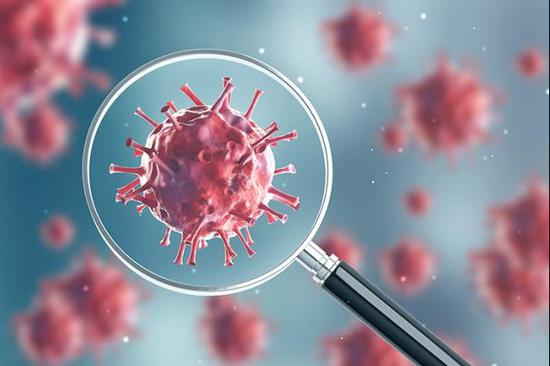Scientists finds clues to crack mystery of long COVID
After tracking recovered COVID-19 patients for over two years, a group of Chinese scientists have unearthed clues that could explain the mechanisms of long COVID-19. They have discovered key biomarkers that can help identify high-risk groups and develop treatment.
Long COVID-19 — characterized by lingering symptoms such as fatigue, breathlessness or cognitive dysfunction even three months after the initial infection — is estimated to affect around 10 to 20 percent of people infected by the disease, said the World Health Organization. The biology behind the condition remains a mystery.
For the study published last week by the online journal EBioMedicine, an arm of The Lancet, a team of Chinese researchers studied 181 COVID-19 patients who were discharged from a hospital in Wuhan between January and May 2020, as well as 181 healthy individuals matching in age and gender.
The researchers collected plasma samples from the case studies during three follow-up visits over the next two years and analyzed the structure and function of blood proteins.
"We identified four recovery modes of different biological processes among COVID-19 survivors over the two years after infection, and thus gathered molecular insights into the potential mechanism of long COVID," said the study released by a research team led by Cao Bin, vice-president of China-Japan Friendship Hospital and a renowned respiratory and critical illness expert.
The other authors include researchers from Peking Union Medical College Hospital and Wuhan Jinyintan Hospital in Wuhan, Hubei province, where the first domestic cases was registered.
Analysis results further enabled the researchers to uncover 23 biomarkers that appeared to be connected with lingering COVID-19 symptoms. Identifying biomarkers is crucial for identifying people who are at higher risk of contracting the condition and assessing outcomes of experimental treatment.
"In a context where diagnosis and treatment of long COVID are both challenging, the findings put forward biomarkers for more precise intervention to reduce burden of long COVID," said the study.
In early May, the World Health Organization declared that the COVID-19 pandemic no longer constitutes a global health emergency even as scientists around the world are striving to understand biological factors associated with lingering symptoms of the disease.
In a paper helmed by Gao Fu, former director-general of the Chinese Center for Disease Control and Prevention, that was published in September, it is said that long COVID-19 symptoms are common and it takes about one to two months for the majority of patients to fully recover.
Wang Guiqiang, head of the infectious disease department at Peking University First Hospital, said during an interview in May that persistent symptoms after COVID-19 infection usually dissipate within a year for most people and there is no need to stress about the condition.
"We did not see a huge wave of patients with long COVID-19 during the previous wave of the outbreak. But special attention and care should be paid to the elderly at high risk of developing serious illnesses and those with severe chronic disease or immuno-compromised groups," he said.

